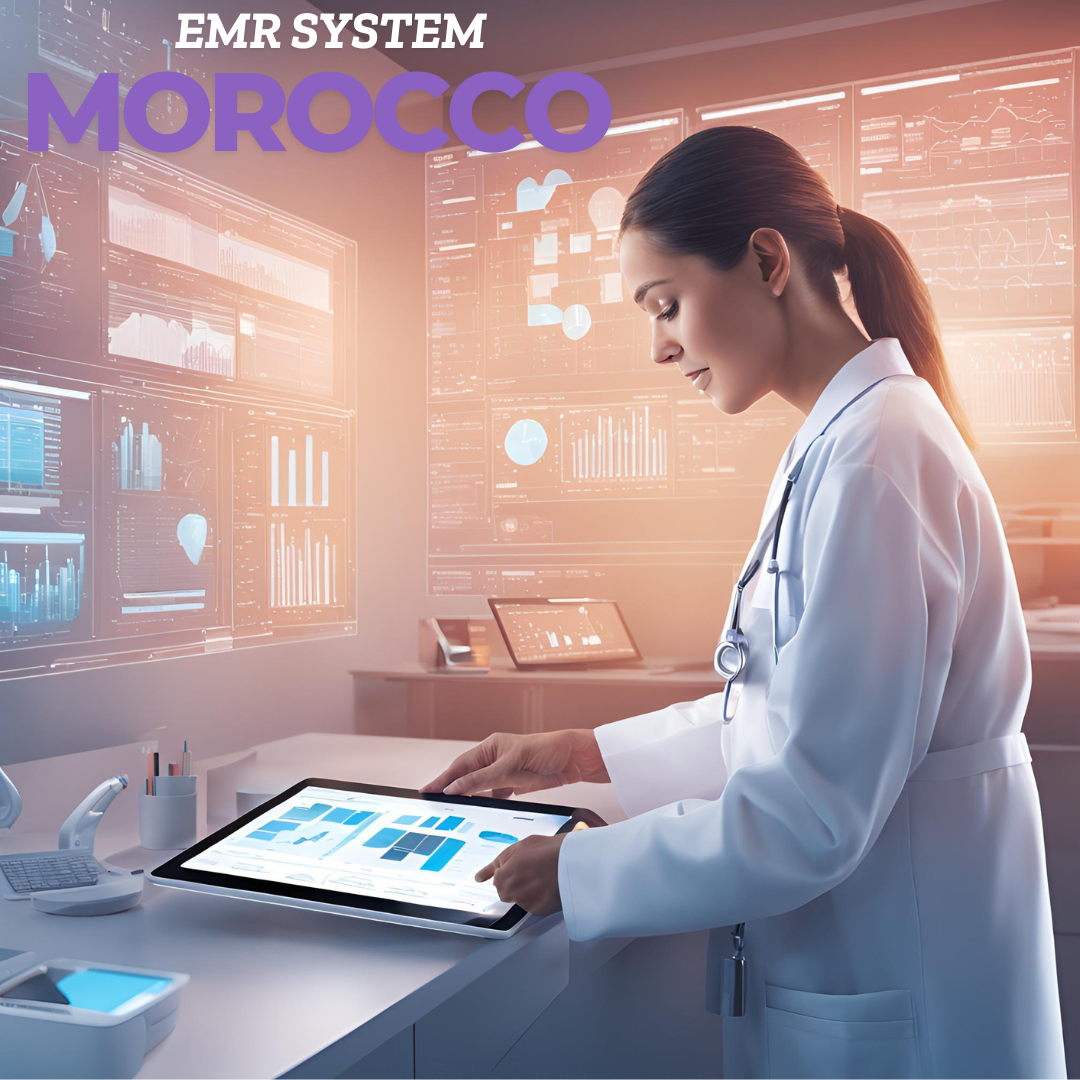
Moroccan healthcare is changing significantly, and the broad use of Electronic Medical Records (EMR) systems is one of the main causes of this development. E-medicine systems have become a necessary tool for medical offices all throughout the nation as demand for improved healthcare services, effective patient care, and simplified operations grows. Whether your role is IT professional, clinic manager, or healthcare provider, knowing the advantages and processes associated in EMS system deployment in Morocco can help you to remain competitive and satisfy consumer expectations.
What Is an EMR System?
An E-medicine system is a digital replica of a patient’s paper chart. All of it—medical history, diagnosis, drugs, treatment plans, immunization dates, test findings—stashed electronically. E-learning technologies are revolutionizing patient data management among medical practitioners in Morocco, so improving accessibility, accuracy, and efficiency.
The Growing Need for EMR System in Morocco
E-learning systems’ deployment becomes essential as Morocco’s healthcare system develops. Managing patient data effectively is critical given a fast rising population and increased healthcare needs. Older paper-based methods are slow, prone to mistakes, and challenging to distribute among several healthcare practitioners. By means of real-time access to patient data, an EMR system in Morocco improves communication among healthcare providers, lowers errors, and finally helps to improve patient outcomes.
Key Benefits of Implementing an EMR System in Morocco
- Improved Patient Care: EMR systems allow healthcare providers to have a comprehensive view of a patient’s medical history at the touch of a button. This helps in making more informed decisions, reducing the risk of medication errors, and ensuring that patients receive personalized, timely care.
- Efficiency and Time-Saving: With an EMR system, doctors and medical staff can save time on administrative tasks. Electronic records are easy to update, access, and share, allowing healthcare workers to focus more on patient care rather than manual paperwork.
- Cost-Effectiveness: Implementing an EMR system in Morocco can significantly reduce operational costs. With better data management, fewer errors, and reduced need for paper-based records, healthcare providers can operate more efficiently and lower overall costs.
- Better Data Security and Compliance: EMR systems provide a secure and organized way to store patient information. With encryption and secure access controls, patient data is protected from unauthorized access, and healthcare providers can comply with privacy regulations.
- Facilitating Telemedicine: As telemedicine continues to gain popularity in Morocco, EMR systems play a pivotal role. Healthcare professionals can access and update patient records remotely, providing continuity of care even when patients are located in different parts of the country.
Steps for Successful EMR System Implementation in Morocco
- Assess Your Needs: Before implementing an EMR system in Morocco, it’s essential to assess your clinic or hospital’s specific needs. Consider factors like the size of your practice, the number of patients, and your desired features.
- Choose the Right EMR System: Not all EMR systems are the same. Make sure to choose one that aligns with your practice’s needs and integrates well with other systems. Look for features such as customizable templates, easy-to-use interfaces, and strong customer support.
- Plan for Training: Staff training is key to a successful EMR transition. Ensure that all users understand how to operate the system effectively. In Morocco, many EMR providers offer training programs to ease the learning curve for medical staff.
- Data Migration and Integration: Migrating from paper records to digital ones can be a complex process. A well-planned data migration strategy will help minimize errors and ensure that all relevant patient information is transferred accurately into the new system.
- Ongoing Support and Updates: Once your EMR system is up and running, ensure that you have access to ongoing technical support and regular software updates. This will help keep the system running smoothly and adapt to any changes in regulations or healthcare practices.
Challenges to Consider
While the advantages of an EMR system in Morocco are clear, there are also challenges to consider. The initial cost of implementation, data security concerns, and the need for continuous staff training can pose obstacles. However, with careful planning and the right EMR provider, these challenges can be overcome.
Conclusion
Adoption of EHR systems is transforming Moroccan healthcare by providing major advantages in terms of patient care, efficiency, and economy of cost. Healthcare providers may keep ahead of the curve, enhance their offerings, and help Morocco’s expanding digital healthcare ecosystem flourish by seeing the value of putting an EMS system in place there and following the correct guidelines. Adopting EMS technologies will be crucial to guarantee that patients get the best possible treatment as the healthcare industry develops.